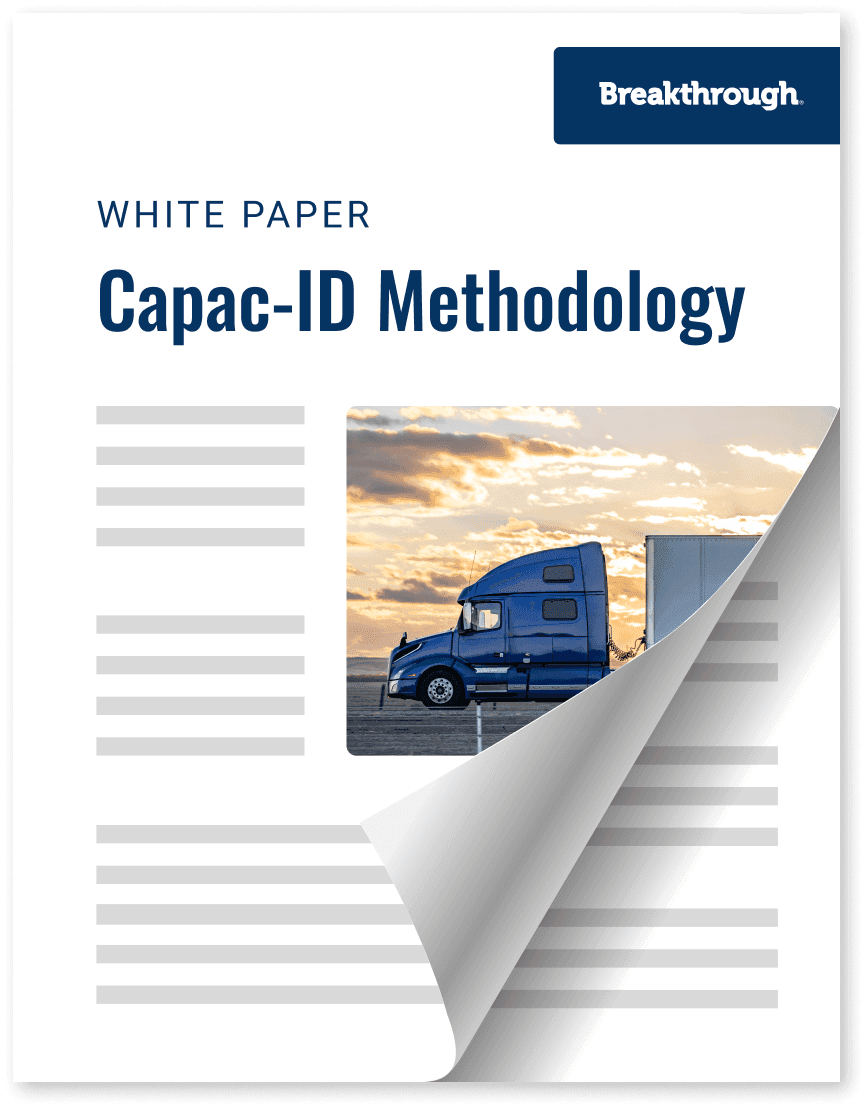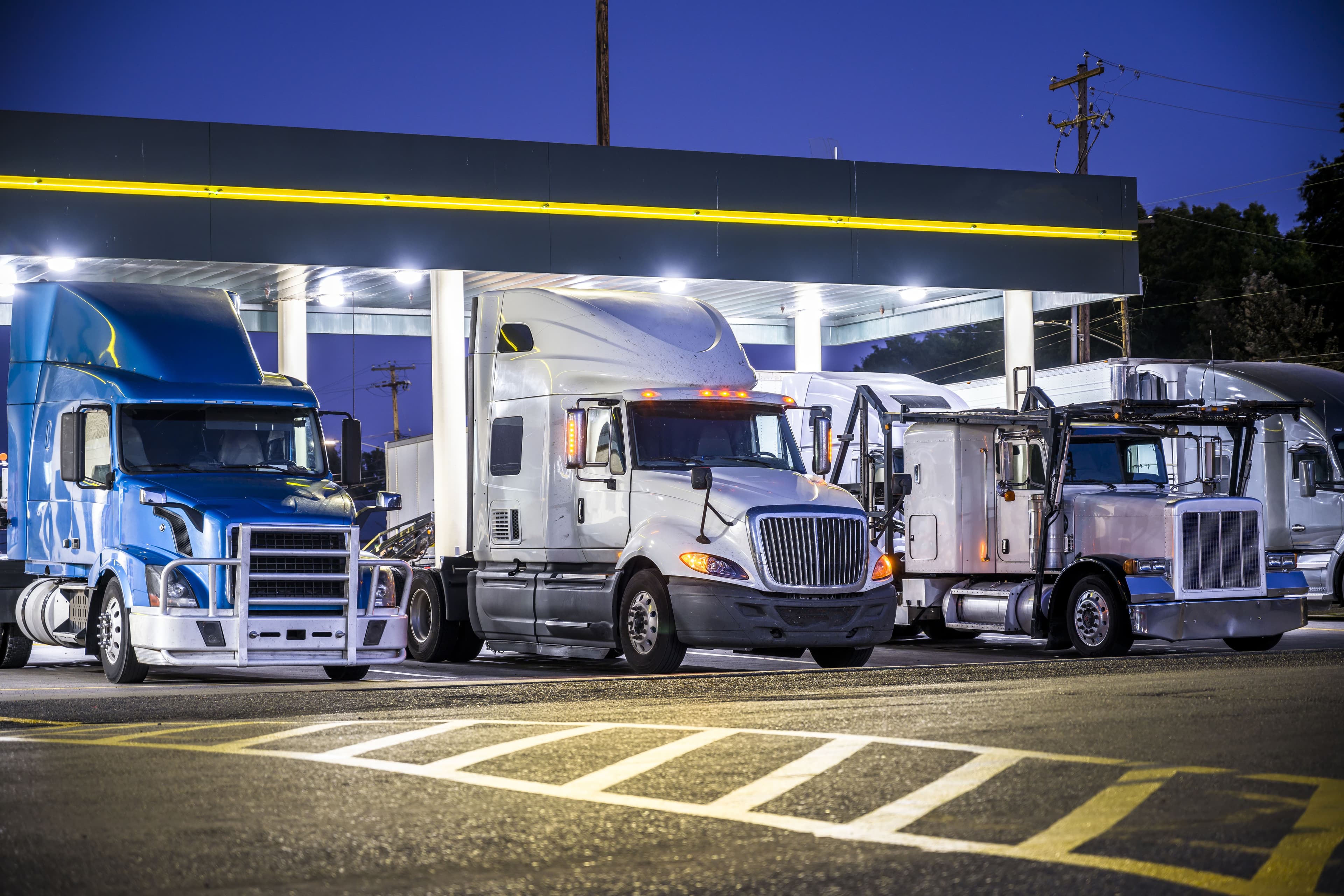Breakthrough’s Capac-ID Methodology

Trending
Top Posts
3 min read
September 10, 2024

Share:
Table of contents
Browse the table of contents to jump straight to the part you’re looking for
Shippers in Europe have a strategic opportunity to enhance transparency and standardization in diesel fuel price calculations for transport contractors. It starts with understanding the cost buildup of their all-in transport charges. By analyzing the specific amounts in each fuel and freight category, shippers can gain valuable insights into their consumption to reimburse transport contractors appropriately.
Fuel Recovery facilitates this process for shippers, ensuring fair and precise pricing in Europe that aligns with the pump costs encountered by transport contractors. Moreover, it enables accurate tracking of transportation lifecycle emissions per the Global Logistics Emissions Council (GLEC) framework, enhancing your company's reputation as a responsible business partner.
While carriers may initially resist a program shift, the benefits favor them. Implementing weekly instead of monthly or quarterly adjustments, and tailoring by region or country rather than using the EU27 average, allows for accurate accounting of transport charges and country-specific taxes. With over 500 transport contractors already integrated into the program, this transition promises ease and efficiency for a robust Europe transport energy management program.
Fuel Recovery in Europe gathers metrics such as origin-destination pairs, truck weight, and equipment type to determine the liters of fuel consumed per country. After the calculation is completed, both you and your transport contractors will receive an accurate transport charge for that movement. This charge includes the exact amount of fuel consumed and any applicable country-specific taxes.
One of the primary benefits of Fuel Recovery is its ability to provide fair and transparent pricing for both you and your transport contractors. By using actual fuel consumption metrics, there is no room for discrepancies or hidden costs in transport charges. Additionally, accurate tracking of transportation emissions allows you to confidently report on your transportation emissions baseline.
To successfully integrate Fuel Recovery into your European operations, a structured implementation process is essential. This process not only ensures a smooth transition for all parties involved, but also maximizes the benefits of enhanced transparency and emission tracking.
Here are the key steps involved in the implementation process:
By embracing a robust Europe transport energy management program, you can significantly enhance your operational efficiency, strengthen your commitment to sustainability, and develop mutually beneficial carrier partnerships.
Fuel Recovery presents a forward-thinking approach to transport charges and emissions tracking that benefits all parties involved. As transportation continues to evolve under stringent environmental standards, shifting revenue from an all-in transport cost to fuel and freight charges is not a concern but rather a strategic adaptation that reflects true operational costs. This transition enhances clarity and fairness in pricing and improves relationships with transport contractors.
To discover how Fuel Recovery can enhance your operational efficiency and foster transparent transport charges, we invite you to schedule a meeting with our team. Let us answer your questions and tailor a solution that meets your specific needs.

5 min read
January 7, 2026
Learn how to negotiate better fleet fuel discounts with proven strategies from industry-leading leaders. Optimize your fuel card program and leverage market insights to reduce costs.
Read more
7 min read
January 5, 2026
Recent events in Venezuela haven't spiked crude oil prices. Learn why ample global supply and market fundamentals are keeping fuel costs steady for shippers.
Read more
5 min read
January 2, 2026
Stay ahead of Q1 2026 diesel fuel tax by state adjustments. See how changes in states like MI and NJ will impact your transportation spend.
Read more